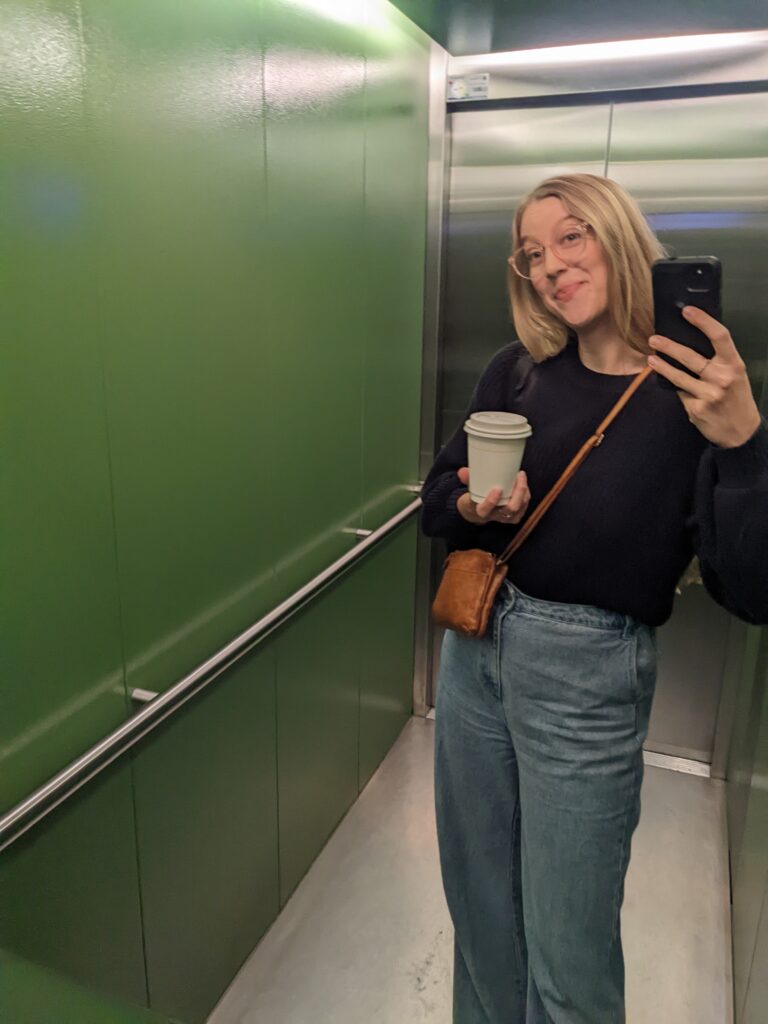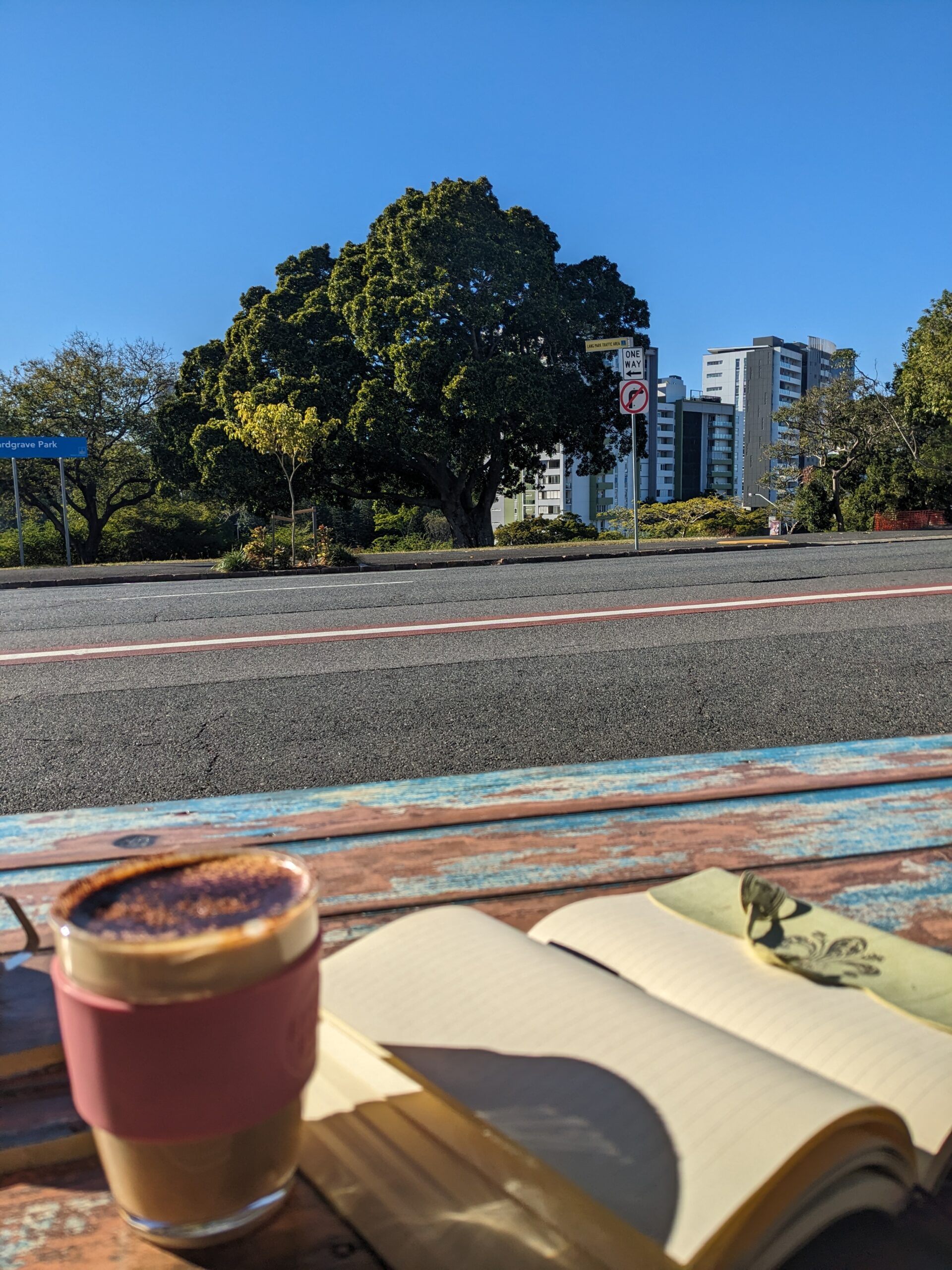A realisation I’ve had recently: I’ve never had a job I loved – or even nearly loved. I’ve had jobs that I’ve liked, of course, but my reasons for having liked them lay not in the actual work I was getting paid to do, but for everything else that came with them: friends, travel, stability, an occasional sense of pride and validation in my abilities.
But liked the work? Not really. Creating content for the sake of the sale or the brand always felt unfulfilling (for clarity – for most of my career I’ve been a marketing copywriter). Is anybody other than my managers and maybe a handful of bored employees actually reading this? I’d question after posting an article on the company’s blog page. And if they are, is it remotely interesting or helpful?
I wrote business articles to “provide value” to customers, even though I was usually highly inexperienced in the topic on which I was writing, and had to rely on scattered notes from disinterested but obliging colleagues who were, and on Google, for help. (You know the ones: “How to improve company morale!” written by a person who knows nothing about company morale, let alone how to improve it.) Occasionally, I’d relish the opportunity to write a human-interest piece, which required me to interview a happy customer and tell their story. But this too became stale as I grew bored of the formula required of these narratives: customer suffering before purchasing, customer better after.
So I changed jobs. The articles became more varied and interesting at my new gig, but the company culture was bleak; there was no trust in us as employees, the hours were long, the pay meagre. However, it was also here that I discovered that, in the wise words of today’s most celebrated pop star, the problem is (in part) me.
Because even as a content writer at a marketing agency, where my only task was to write content, and not even sales-y content, for a variety of brands, and where I liked the topics I was writing about, I still woke up with dread each weekday. I hadn’t yet made friends and the hours were long, but the thoughts that plagued me most as I stood in the shower on a bleak Monday morning were worries about the quality of my work, and the pace at which I completed it. My lack of confidence in my abilities as a writer was the problem.
It didn’t matter that nobody ever commented on my productivity, and that when a comment did come it was from my manager during a weekly meeting – in front of the entire marketing team – commending me on my latest article.
Still, I left that job, too. It took only two weeks. I told myself it was the terrible pay and culture that propelled me, which was mostly true, but I knew deep down that I couldn’t deal with the dread that came from doubting myself every day. And this wouldn’t have changed even with better working conditions – which I proved with my next role.
I began freelancing, where I could set my own hours and pay. Though I enjoyed it far better than any job I’d had to date, it wasn’t long before I faced the same issues with low confidence and boredom that I did while I was employed. Not wanting to go back to the 9-to-5, I stuck with it. The negative thoughts were loud and rowdy and, though I couldn’t ignore them, I bit my lip and worked angrily alongside them. I soon lost the motivation to keep it up and, while I remained self-employed, gave up on copywriting altogether.
With years between that time and now, I can appreciate that the work was indeed challenging: “write what you know” is an oft-quoted phrase in the writing world (alongside “write what you love”), and it is difficult to write, in incredible detail and with a unique perspective, about something you don’t know, and can only get to know in an hour or two by reading others’ blogs on the internet. Ditto when the topics are almost as inspiring to you as dry toast.
But I didn’t know all of this then – I could only perceive my struggles as proof I possessed little to no writing skill. And this lack of confidence, together with a frequent disinterest in what I was writing about, resulted, I assume, in my dislike for the job. But I do wonder: if I had had more confidence, could I have retained interest? Or, if I’d have learned to better manage the negative thoughts, could I have liked or even loved the work?
Whatever these answers are, ultimately it doesn’t matter. I quit before I had this revelation, and I have no desire to start copywriting again. I do want to improve my confidence in writing, but not with the goal of making a copywriting comeback, rather so that I might write more blogs like these, or, one day, a novel. This style of writing truly interests and excites me, so I’m keen to do what it takes to encourage the habit and grow in this realm.
So – if you dread going to work, ask yourself if you think you’re lacking confidence in your abilities or an interest in what you’re doing. Look carefully at each, as I believe they overlap in a small but not insignificant way: if the interest is there but the confidence isn’t, that lack of confidence can erode that interest (but, I’m starting to believe, if you’re truly interested, it can never fully erase it). And if the interest isn’t there but the confidence is, you’re probably just bored.
While I have remained self employed and in marketing, my focus now is less on writing and more on data and strategy as a Google search marketer. Initially, the work interested me. When I was a beginner and with no pressure to perform, I enjoyed setting up my clients’ ads and helping them achieve a profitable return on investment. But after some years and training and, later, the self-imposed expectations I’ve set based on all that training and experience, I’m again starting to lose motivation, feeling unsatisfied, and now debating leaving the marketing field entirely.
But have I actually lost interest, or, now that I’ve put more pressure on myself to perform, is my confidence to blame? Before I trudge off onto a different career path, I want to find out. This means improving my confidence first. I figure no negatives can come from this task: either I rediscover my interest, or I discover that no interest exists. Either way, I’ll be left with more confidence in myself, which can only be a positive in the quest for fulfilling work.
I’ll keep you updated as I go.
E.





Leave a Reply